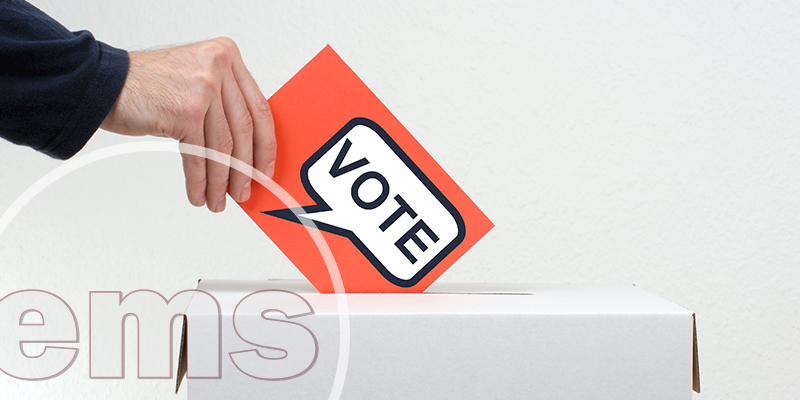When it comes to HOA voting, not all homeowners associations have it down pat. Some still struggle to standardize their procedures and hold seamless elections. This is where a guide will come in handy.
The Importance of HOA Voting
Homeowners associations are run by a set of board members collectively known as the HOA board. While they can also be appointed, most associations elect their boards. Each board position has a term limit. And when the member reaches the end of their term, their position opens up, and the HOA must hold another election to fill the available post/s.
Homeowners association voting, though, isn’t limited to board member elections. Aside from electing and removing board members, most associations must hold a vote before amending their governing documents. In general, association boards also need to secure a majority vote from the membership prior to levying special assessments or increasing regular dues.
The exact circumstances that would necessitate a vote can change, though, depending on your location and your governing documents. For instance, Arizona law requires HOAs to get majority approval from the membership for an increase of more than 20 percent of the previous year’s dues. Meanwhile, no such law exists in some other states.
Not all board actions require a vote from all homeowners. In fact, a number of resolutions only need a vote from the board. But, for more important actions that will impact the entire community, approval from members is necessary. Voting ensures a level playing field and allows homeowners to have a say in association matters.
What Are HOA Voting Rules?
State law typically requires homeowners associations to establish election or voting rules. You will find these rules within your governing documents, particularly the bylaws. These rules should also be compliant with federal, state, and local laws to remain valid. Without a written set of rules, the board and the HOA itself run the risk of liability.
There is no universal set of voting rules that can apply to all HOAs. Every association is different and will usually require its own, unique set of rules. Aside from adhering to the law, HOA voting rules must also not conflict with other provisions in the governing documents. A lawyer can help your board draft your election rules and see to it that it doesn’t clash with existing laws and bylaws.
What to Include in HOA Voting Rules
So, what should your voting rules contain?
- Nomination Procedures. This explains how candidates can be nominated.
 Candidate Qualifications. When writing candidate qualifications, it’s important to be precise in your wording. For instance, you can indicate that candidates must have no outstanding debt towards the association.
Candidate Qualifications. When writing candidate qualifications, it’s important to be precise in your wording. For instance, you can indicate that candidates must have no outstanding debt towards the association.- Campaigning Rules. How can candidates go about campaigning? Where can they do it? This should also outline the candidate’s access to HOA media, such as the association’s mailing list, newsletter, community website, and the like.
- Ballot Procedures. This tackles how homeowners can vote using their ballots.
- Voting Power. Will it be one vote per unit or does each person from a single household get a vote?
- Proxy Rules. This explains how homeowners can use proxies to vote on their behalf.
- Voting Period. How long do homeowners have to cast their vote?
- Other Rules. Other rules include how the association will deal with certain circumstances such as a tie, uncontested elections, and recall elections.
Boards should ensure that they follow all voting rules to the letter. If homeowners have to vote by a certain date, give yourself enough time to send out the ballots and any other forms necessary. You should also allow ample time for candidate nominations and campaigning before the actual elections. Remember that an attorney can provide immense help should your board find itself in a bind.
What Is a Quorum?
Boards might wonder how many owners should show up to a vote to deem the election legitimate. But, it depends on the HOA. To proceed with a vote — any vote — a homeowners association must first establish a quorum.
A quorum is simply the minimum number of people an association requires to conduct business. There is no number that fits all communities. Instead, it varies from one association to another. You will find your HOA’s quorum requirements written in your governing documents.
If an HOA fails to meet a quorum, it can’t proceed with any actions. Any vote it takes during the meeting is deemed invalid and, therefore, not legally binding. For instance, if an HOA needs at least 30 homeowners to proceed with a vote, 29 won’t cut it. Should the HOA vote to increase dues, homeowners can challenge the validity of the increase since the association failed to meet the required quorum.
The quorum requirement is not always stated in hard numbers. More often than not, an HOA’s bylaws will require a percentage of the total membership to constitute a quorum.
All About HOA Proxy Voting
Many homeowners associations allow members to vote by proxy. Proxy voting simply means letting someone else vote on your behalf. This method of voting can have a huge benefit to the association because it allows homeowners to still participate in a vote even when their schedule prevents them from being physically present.
Does a proxy count towards a quorum? It depends on your association’s governing documents. Generally, proxies do count towards a quorum, allowing the association to conduct business without everyone attending the meeting. It is worth noting that proxies do have to attend the meeting to be considered part of the quorum.
An HOA voting proxy form is a legal document that homeowners use to delegate their right to vote to another person. Unless the law or the governing documents say otherwise, homeowners can pretty much appoint anyone as their proxy. Make sure your proxy form has an explicit statement from the owner appointing another named party as their proxy. The form should also bear the owner’s signature.
Available Methods for Voting
There are a number of voting methods an HOA can use, though the exact ones available to you will depend on what your governing documents authorize. Apart from voting by proxy, HOAs can use the typical ballot or opt to go with a secret ballot.
The ballot method is simple and straightforward. Homeowners must complete a ballot that consists of their names and other details as well as the person or item they are voting for. In contrast, a secret ballot keeps the identity of the voter hidden. Both types of ballots are typically physical and must be mailed or submitted in person.
Alternatively, associations can choose to make use of technology for their voting procedures. If state laws and your governing documents permit, you can utilize HOA voting online tools or services to allow for remote participation. The number of votes you receive will simply act as a way to establish a quorum. For instance, if you receive only 10 votes but require 15 to meet a quorum, then the vote will not count. Even if homeowners intend to abstain from the vote, it is necessary to encourage them to fill out the online ballot.
Do Renters Have a Right to Vote?
Most HOA communities only allow association members (i.e. homeowners) to vote. Renters don’t receive voting rights. But, there are instances when a homeowner can’t make it to a meeting and sends their tenant to vote on their behalf. In this case, the homeowner would need to complete a proxy form transferring their voting right temporarily to their tenant.
Voting Failure: What Now?
The requirement for a vote to pass can vary from one community to another, even from one issue to another. For example, a vote to approve a special assessment might only need more than 50 percent of the votes, while a vote to remove a board member may require a two-thirds majority.
 It is not uncommon for an HOA to encounter a voting failure. This can happen if the association fails to reach a quorum or if it fails to secure the appropriate number of votes. The difference between the two scenarios is that voting actually transpired in the latter. If no quorum is met, the vote doesn’t proceed at all.
It is not uncommon for an HOA to encounter a voting failure. This can happen if the association fails to reach a quorum or if it fails to secure the appropriate number of votes. The difference between the two scenarios is that voting actually transpired in the latter. If no quorum is met, the vote doesn’t proceed at all.
When this happens, the association can set another date and, hopefully, meets the required quorum then. Apart from sending the required notices, boards should make every effort to advertise the meeting and upcoming vote to increase their chances of reaching a quorum.
If the HOA fails to secure the appropriate number of votes, then the resolution won’t pass.
Don’t Be Afraid to Ask for Help
The rules on HOA voting can certainly be challenging to understand, especially if you have a relatively new community. And state laws and your governing documents may not provide you with sufficient guidance. In this case, it may be best to seek professional help from an HOA management company.
Elite Management Services offers HOA management solutions to planned communities and condominiums. Call us today at (855) 238-8488 or contact us online to learn more about our services.
RELATED ARTICLES:
- What Goes On In HOA Elections?
- HOA Budget Meeting: Tips For Planning And Presenting
- Interim HOA Board: Should Vacant Positions Be Filled Immediately?





